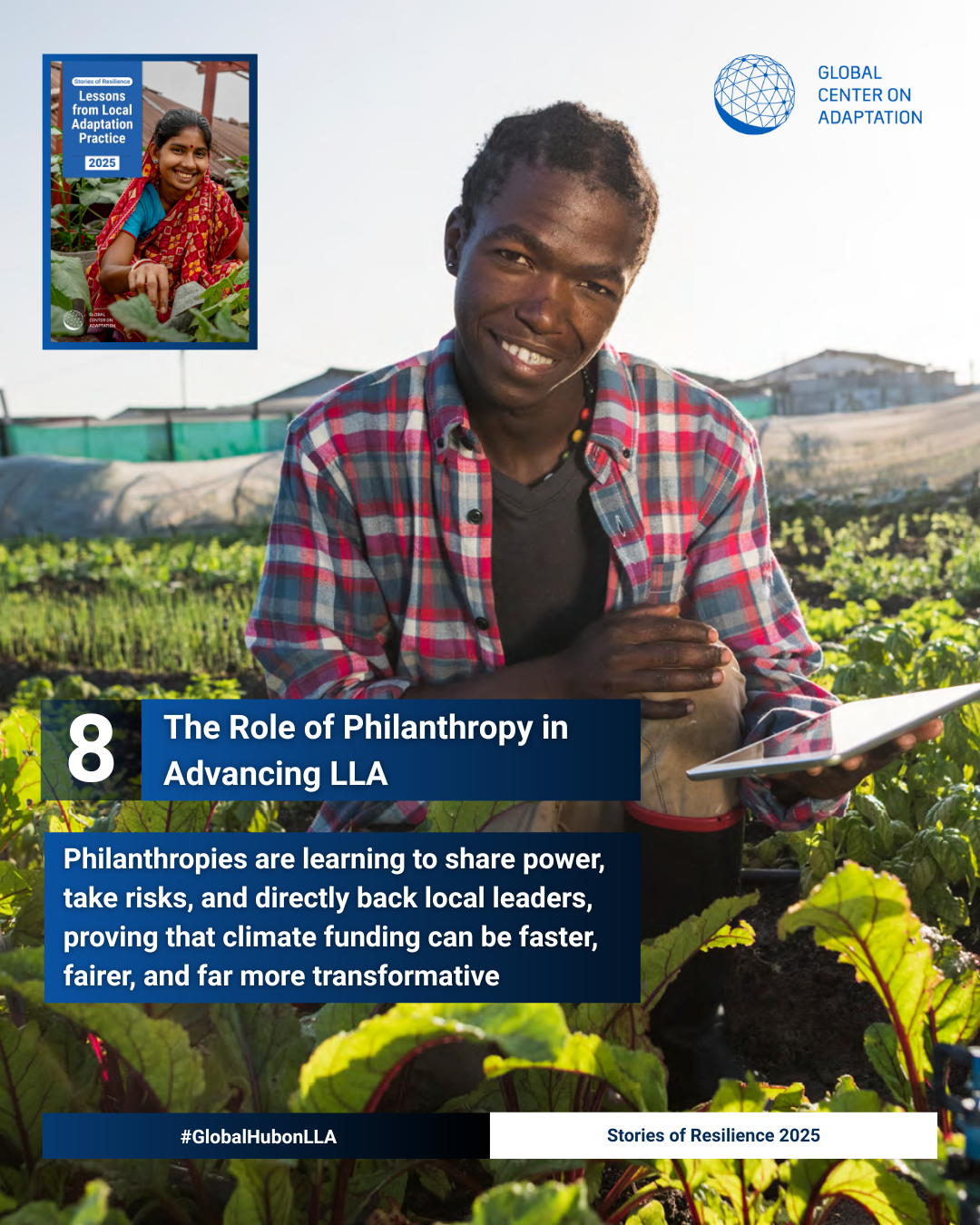The Global Center on Adaptation (GCA) launched its flagship publication Stories of Resilience: Lessons from Local Adaptation Practice at the UN Climate Change Conference (COP30) in Belém, Brazil, calling for a step-change in global efforts to finance and scale locally led adaptation.
CJRF’s Heather McGray and Hilary Nilsen contributed to Chapter 8 of the report: The Role of Philanthropy in Advancing LLA. In this chapter, we shared CJRF’s experience funding systemic change and rights-based activities in places like Bangladesh, our ongoing evolution becoming a participatory grantmaker, and our current learning by doing ethos.
Concluding the chapter, we share the below emerging lessons to guide other funders interested in transitioning to more participatory grantmaking processes.
Participation takes time. This is well-known and well-documented among experts in participation, but it bears repeating: inclusive processes generally require more time than traditional models. For example, CJRF’s participatory grantmaking pilots, initially planned as an 18-month experiment, are now scheduled to span at least two years. Extra time is needed, especially when the work expands across time zones and contexts. Funders should allocate sufficient time for shared understanding, decision-making, and unexpected developments.
Strategy should evolve. CJRF’s iterative approach has allowed strategy to emerge organically through the participatory grantmaking pilots. Funders are encouraged to embrace flexibility rather than rely on overly prescriptive frameworks.
Participation has many forms. Participatory grantmaking encompasses a spectrum of practices, from co-creation of strategies and diverse review panels to crowdsourced funding decisions. Funders should design approaches that genuinely shift power, avoiding extractive participation.
Building power is critical. Even funders without fully participatory models can support transformational projects that build community power and secure rights. Technical interventions, such as canal rehabilitation in Bangladesh, succeed only when paired with efforts that strengthen community capacity to advocate and organize.

